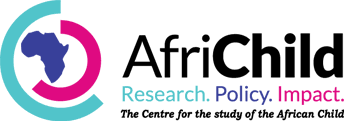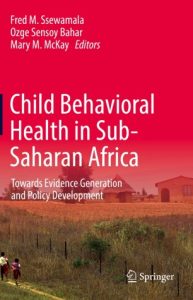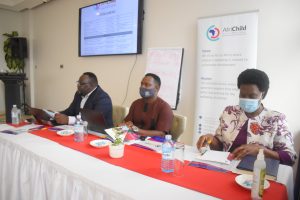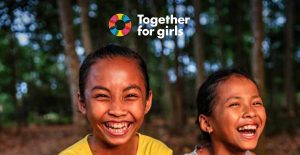Aware that children have been affected greatly during the pandemic, the AfriChild Centre has continued using mass media to disseminate its study findings and call on communities and authorities to prioritize child protection in these times of uncertainty.
On March 3rd, 2021 between 5-8 pm, AfriChild’s Program Manager (Research), Denis Nono shared highlights on the current situation of children based on studies conducted at the Centre and presented some of the measures to keep children safe and engaged during the COVID-19 situation.
The two-hour interaction explored different topics and approaches in supporting children in the COVID-19 period including how to engage children in activities that boost their mental prowess, the impact the COVID-19 pandemic has had on children, how COVID-19 has fueled violence against children, myths and misconceptions people have about mental health in children, supporting children to cater for their mental health needs and parental involvement in the protection and care of children during the pandemic.
Other aspects that were shared in this discussion included results of the study on the “Impact of COVID-19 on the wellbeing of children in Uganda” that was carried out by the AfriChild Centre between June and August, 2020 especially focusing on how the findings will help policymakers and other stakeholders in devising measures to support and protect children during the ‘new normal.
“The findings interestingly showed that 95% of the children who participated in the study were attending school at the time the government ordered school closure, and yet almost four in every ten children (44.5%) had no access to any of the education platforms available during the lockdown/school closure and this did not only exacerbate the school dropout rate but also exposed children to different forms of violence during lockdown” – Denis mentioned.
He discussed the prospective challenges that some children resuming school might face including challenges in reintegration and comprehending knowledge, adjustment challenges (some may be bound to pressures of drop out), school pressures and exhaustion related to the urge to complete school syllabus within the government allotted time, inability for schools to meet the minimum requirements set out by the MOH and MoES. Others included inability to meet school requirements, early pregnancies among others.
“I foresee huge challenges ahead of us in reintegrating children back to school during this pandemic and it takes the role of all stakeholders (parents, teachers, school heads, government, and communities) to embrace educational programs and timetables that have curved out and realigned to ensure that children are able to learn and improve on their skills and knowledge for development as a country”, he mentioned.
Denis concluded the on-air discussion by outlining policy and program recommendations, and his last message to the listeners was centered on taking responsibility for our children and ensuring that listeners and everyone observes MOH guidelines and precautions set out by the government in order to curb the spread of COVID-19.
“We ought to take responsibility for our children bearing in mind that in order for children to achieve the best in life, primary caregivers need to strengthen their support to them. We need to utilize the relevant government and non-state actor facilities to ensure that children thrive and follow the MOH guidelines set against the spread of COVID-19 in order to realize holistic development”.






